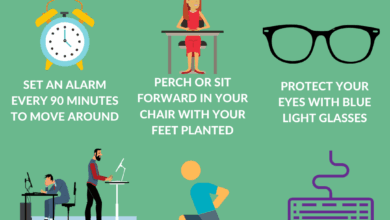
Nostalgia makes us happier healthier, taking us on a journey through the comforting warmth of the past. This exploration dives into the psychological and emotional impact of nostalgia, examining how reminiscing about cherished memories can positively influence our well-being. We’ll uncover the fascinating ways our brains process these feelings, from the simple joy of a familiar song to the profound comfort of shared family traditions.
We’ll also touch upon how nostalgia can impact our physical health, offering insights into its potential role in stress reduction and immune function.
The exploration delves into the multifaceted nature of nostalgia, examining its various triggers and the wide range of emotional and physical responses they evoke. We’ll also analyze the role of social connections, cultural backgrounds, age, and personal narratives in shaping nostalgic experiences. Furthermore, we’ll explore how nostalgia manifests in different contexts, from personal growth to artistic expression. Finally, we’ll equip you with practical strategies to harness the positive aspects of nostalgia while mitigating any potential drawbacks.
Defining Nostalgia’s Impact
Nostalgia, a bittersweet longing for a past time or place, is a deeply human experience. It’s more than just a sentimental feeling; it has significant psychological and physiological effects that can profoundly impact our well-being. From the comfort of cherished memories to the subtle influence on our present choices, understanding nostalgia’s impact is key to appreciating its multifaceted role in our lives.Nostalgia is a complex emotion rooted in the interplay of memory, emotion, and social connection.
It’s not simply a recollection of past events but a re-experiencing of associated feelings and emotions. This re-experiencing is often positive, fostering feelings of comfort, security, and connection. However, it can also be tinged with sadness, reflecting a yearning for what is lost or a perceived inability to replicate those past experiences.
Understanding the Psychological Mechanisms
Nostalgia’s power stems from its psychological mechanisms. Researchers have identified several key aspects that contribute to the emotional response. The activation of specific memories, often triggered by sensory cues, is crucial. These cues can be anything from a familiar scent to a specific song, instantly transporting us back in time. Furthermore, the emotional valence associated with those memories plays a pivotal role.
Nostalgia, that warm fuzzy feeling about the past, can actually boost our well-being. Researchers are constantly uncovering the positive effects of reminiscing, finding that it can improve our mood and even contribute to better physical health. However, while we’re pondering the joys of the past, it’s important to also keep up with current medical breakthroughs, like Dr. Faustman’s controversial diabetes cure research continues here.
Ultimately, understanding both the past and the present can lead to a more balanced and healthier outlook, reinforcing the notion that nostalgia truly makes us happier and healthier.
Positive associations with the past create a more pleasant nostalgic experience, while negative ones can lead to a less joyful re-experiencing.
Types of Nostalgia: Positive and Negative
Nostalgia can manifest in different forms, each with its own impact on mood and well-being. Positive nostalgia is characterized by feelings of warmth, happiness, and connection to cherished memories. This type of nostalgia often strengthens positive self-identity and reinforces a sense of belonging. Negative nostalgia, conversely, can evoke feelings of sadness, regret, and isolation. It might be associated with painful memories or a sense of loss.
The emotional response hinges heavily on the specific content of the memories and the associated emotions.
Influence on Happiness and Health
The impact of nostalgia on happiness and health is demonstrably positive, especially when the memories are positive. The act of reminiscing about happy times can trigger the release of endorphins, promoting feelings of well-being. Furthermore, nostalgia can strengthen social connections, as sharing memories with others fosters a sense of community and shared experience. On the other hand, excessive or prolonged negative nostalgia can negatively affect mental and emotional health.
It’s crucial to acknowledge and process negative feelings associated with the past to prevent them from hindering present well-being.
Triggers of Nostalgia and Their Responses
Nostalgia is often triggered by various cues, and these triggers can elicit a diverse range of emotional and physical responses.
| Trigger | Potential Emotional Responses | Potential Physical Responses | Example |
|---|---|---|---|
| Familiar song | Nostalgia, happiness, sadness, longing | Increased heart rate, tears, chills | Hearing a song from childhood |
| Specific smell | Intense nostalgia, memories | Relaxation, calmness, anxiety | Smelling freshly baked cookies from childhood |
| Visual imagery (photo, place) | Nostalgia, connection, detachment | Elevated blood pressure, anxiety, comfort | Seeing a childhood photo album |
| Encountering a familiar person | Nostalgia, connection, joy, sadness | Increased heart rate, happiness, anxiety | Meeting a former friend from childhood |
Nostalgia and Happiness

Nostalgia, often perceived as a wistful longing for the past, surprisingly plays a significant role in shaping our current emotional landscape. It’s not just a sentimental feeling; research suggests a strong link between nostalgic memories and positive emotions, contributing to overall well-being and happiness. This exploration delves into the multifaceted ways nostalgia fuels happiness, highlighting the connection between remembering the past and experiencing joy in the present.Nostalgia acts as a powerful buffer against stress and negativity.
By focusing on positive memories, we can shift our emotional focus away from present anxieties and concerns. This shift allows for a sense of comfort and security, providing a vital emotional resource during challenging times. The positive emotions evoked by nostalgia often stem from a sense of connection to loved ones, cherished experiences, and personal growth. These connections contribute to a feeling of belonging and purpose, further enhancing overall happiness.
Nostalgia’s Contribution to Positive Emotions
Positive memories, whether large or small, hold a unique ability to evoke feelings of joy, contentment, and even inspiration. Remembering significant events, like graduations, weddings, or family gatherings, triggers a cascade of positive emotions, often associated with feelings of accomplishment, love, and belonging. These emotional associations are potent reminders of our strengths and resilience, which can be vital in coping with current challenges.
The feeling of connection to the past, through shared experiences and cherished relationships, can bring a sense of continuity and meaning to our lives.
How Positive Past Experiences Boost Current Happiness
The act of recalling positive past experiences often leads to a sense of well-being and fulfillment in the present. These memories can be powerful tools for emotional regulation, providing a sense of stability and grounding during times of stress or uncertainty. The process of reminiscing about these experiences can be therapeutic, fostering a sense of gratitude and appreciation for the past.
Furthermore, connecting with these positive memories can strengthen our self-image and self-worth.
Benefits of Nostalgia for Emotional Well-being
Nostalgia’s positive impact extends beyond simple feelings of happiness. It can significantly contribute to emotional resilience and well-being. By focusing on positive past experiences, individuals can develop coping mechanisms to navigate difficult emotions. Nostalgia can provide a sense of stability and continuity, helping individuals feel connected to their past and hopeful about their future. This sense of connection can lead to greater self-awareness and emotional regulation.
Impact of Specific Nostalgic Memories on Mood and Emotional Regulation
| Nostalgic Memory | Impact on Mood | Impact on Emotional Regulation | Further Considerations |
|---|---|---|---|
| Family vacation | Increased feelings of joy, contentment, and warmth. | Reduced stress and anxiety. Fosters feelings of security and belonging. | Remembering shared laughter and fun can create a sense of connection and belonging. |
| Achieving a personal goal | Increased feelings of pride, accomplishment, and self-worth. | Improved self-esteem and confidence. Can boost motivation and resilience. | Reflecting on past successes can inspire future endeavors. |
| Childhood friendships | Increased feelings of nostalgia, connection, and optimism. | Improved social skills and emotional understanding. Provides a sense of community. | Remembering shared adventures and experiences strengthens social connections. |
| Romantic relationship | Increased feelings of love, happiness, and appreciation. | Improved emotional intimacy and connection. Fosters a sense of shared history. | Reminiscing about shared moments can strengthen the bond between partners. |
Nostalgia and Health
Nostalgia, that comforting feeling of longing for a simpler time, isn’t just a sentimental indulgence. Research suggests a surprising link between reminiscing about the past and our physical and mental well-being. It’s a powerful emotion that can positively impact our health in numerous ways, from reducing stress to potentially boosting our immune system. Let’s explore how this often overlooked emotion can contribute to a healthier life.Nostalgia’s positive influence on health stems from its ability to evoke positive emotions and memories.
These feelings of warmth and connection can act as a buffer against the negative impacts of stress and loneliness. By focusing on cherished past experiences, we can cultivate a sense of security and belonging, fostering a stronger sense of self and resilience.
Physical Health Effects of Nostalgia
Nostalgia can influence physical health by impacting stress hormones and cardiovascular function. Positive emotions associated with nostalgic memories can lower levels of cortisol, the primary stress hormone. Reduced cortisol levels have been linked to improved cardiovascular health and a lower risk of various health issues. The act of reminiscing can also lead to a decrease in blood pressure and heart rate, contributing to a more relaxed physiological state.
Stress Reduction and Nostalgia
Nostalgia acts as a powerful stress-reducing mechanism. Engaging with positive memories can shift focus away from present anxieties and concerns. The sense of connection and security evoked by nostalgia can help us feel more grounded and capable of handling stressful situations. This emotional regulation is crucial for overall well-being, reducing the negative impacts of chronic stress on the body and mind.
Nostalgia and Immune Function
Positive emotions and reduced stress levels associated with nostalgia may indirectly influence immune function. Studies have shown a correlation between positive emotional states and improved immune response. While more research is needed to definitively establish a direct causal link, the potential benefits of nostalgia for immune health are an intriguing area of exploration. By fostering a sense of well-being, nostalgia may contribute to a healthier immune system.
Nostalgia and Loneliness, Nostalgia makes us happier healthier
Nostalgia can mitigate feelings of loneliness by fostering a sense of connection to the past and to others. Reminiscing about shared experiences with loved ones can strengthen bonds and create a sense of belonging, even when physical distance separates us. This sense of connection, regardless of time or location, can be particularly valuable in mitigating the negative effects of loneliness, a growing concern in modern society.
Potential Health Benefits of Different Nostalgic Experiences
| Nostalgic Experience | Potential Benefits | Evidence/Examples | Further Considerations |
|---|---|---|---|
| Childhood memories of family gatherings | Reduced stress, enhanced sense of belonging, improved emotional regulation | Strong social connections in childhood often translate to emotional security later in life. | Overemphasis on idealized pasts may not be healthy if it prevents present-day engagement |
| Reminiscing about successful personal achievements | Increased self-esteem, boosted confidence, reduced self-doubt | Positive reinforcement of past accomplishments can empower individuals. | Maintaining a balance between appreciating past success and embracing current challenges is essential. |
| Listening to music from a specific era | Improved mood, reduced anxiety, enhanced sense of connection | Music often evokes strong emotional responses, potentially triggering nostalgic memories. | Choosing music with positive connotations can further enhance emotional benefits. |
| Visiting a familiar place from the past | Sense of comfort, increased feelings of security, improved mental well-being | Familiar surroundings can evoke feelings of stability and belonging. | The emotional impact depends heavily on the personal meaning associated with the place. |
Factors Influencing Nostalgia’s Effects
Nostalgia, that bittersweet longing for a past time, isn’t a uniform experience. Its intensity and impact are deeply intertwined with a variety of personal and societal factors. Understanding these influences allows us to better appreciate the complex role nostalgia plays in our lives, from shaping our identities to influencing our well-being.The intensity and type of nostalgic feelings are significantly influenced by personal experiences, social contexts, and cultural backgrounds.
These factors act as filters, shaping how we perceive and interact with our past. Ultimately, this shapes our present and future.
Social Connections in Nostalgic Experiences
Social connections play a pivotal role in shaping nostalgic memories. Shared experiences with friends, family, and community members are often deeply embedded within nostalgic recollections. These experiences are not merely individual memories but are often intertwined with collective memories, shared within social groups. The narratives surrounding these shared experiences often become part of our collective identities and cultural understanding.
For example, reunions with old friends can trigger intense feelings of nostalgia, not just for the past but for the shared bonds and relationships.
Cultural Background Shaping Nostalgic Memories
Cultural background significantly impacts the content and intensity of nostalgic experiences. Different cultures have unique historical events, values, and traditions that shape the memories we cherish. For example, a person from a culture that emphasizes family history might experience stronger nostalgia for ancestral homes and family traditions. Conversely, someone from a culture that values independence might find nostalgia for periods of personal growth and self-reliance more prominent.
Cultural norms and values influence what aspects of the past are considered meaningful and worthy of nostalgic reflection.
Impact of Age and Life Stage on Nostalgic Experiences
Age and life stage also significantly influence the nature of nostalgic experiences. Individuals in different life stages may have distinct reasons for feeling nostalgic. Young adults might feel nostalgia for their childhood innocence and carefree days. Middle-aged individuals might experience nostalgia for their youth and the significant people they interacted with during that time. Older adults might find nostalgia for their youth, career, or relationships, but often also for the experiences that led to their current wisdom.
This evolving perspective often shapes the intensity and focus of their nostalgic reflections.
Nostalgia, that warm fuzzy feeling of the past, surprisingly boosts happiness and well-being. It’s fascinating how revisiting cherished memories can actually improve our mental and physical health. For example, a friend of mine, Nick, recently celebrated four years of sobriety in his recovery journey, nick 4 years in recovery , and I’ve heard how reflecting on simpler times has played a crucial role in his progress.
Ultimately, tapping into positive memories seems to have a profound effect on our overall happiness and health.
Influence of Personal Narratives and Values on Nostalgic Feelings
Personal narratives and values profoundly shape nostalgic feelings. Individuals develop personal narratives that shape how they interpret and remember past events. These narratives often reflect their core values and beliefs. For example, someone who values independence might find nostalgia for periods when they had more autonomy and freedom. Nostalgia, therefore, becomes a way of reaffirming these values and beliefs.
These individual interpretations and values determine which aspects of the past resonate with us most strongly.
Table: Factors Affecting Nostalgia Intensity and Type
| Factor | Social Status | Time Period | Personal Values |
|---|---|---|---|
| Intensity | Stronger nostalgia for experiences tied to higher social status in the past (e.g., luxury vacations). | Nostalgia for specific time periods can be stronger based on personal significance (e.g., high school years). | Stronger nostalgia for periods that align with personal values (e.g., independence, community). |
| Type | Nostalgia for past privileges or societal positions. | Nostalgia for specific historical events or trends. | Nostalgia for personal growth, experiences that reflect values. |
| Example | A wealthy individual might experience more intense nostalgia for a prestigious university or a luxurious family vacation. | A person might have stronger nostalgia for the 1980s due to a major life event that happened then. | A person who values community might experience stronger nostalgia for their childhood neighborhood. |
Nostalgia and Well-being: Nostalgia Makes Us Happier Healthier
Nostalgia, that bittersweet longing for the past, isn’t just a fleeting emotion. Research suggests a powerful connection between nostalgic experiences and positive well-being outcomes. Reconnecting with cherished memories can be a potent tool for boosting happiness, resilience, and overall mental and physical health. This section explores how nostalgia can positively impact various aspects of well-being, from strengthening family bonds to promoting emotional resilience.Engaging with nostalgic memories can foster a sense of belonging and connection, which are crucial for overall well-being.
This is particularly evident in situations where shared memories are central to the experience, such as family gatherings or reunions. These moments can reignite feelings of unity and shared history, promoting stronger relationships and emotional closeness.
Examples of Nostalgia’s Positive Impact
Nostalgia can manifest in many ways, positively impacting individuals in various life contexts. For example, a recent college graduate, feeling overwhelmed by the challenges of starting a new career, might find comfort in recalling the supportive atmosphere of their childhood home. This memory can provide a sense of grounding and resilience, helping them navigate the anxieties of their new environment.Similarly, an elderly person reminiscing about their youth through old photos or stories can experience a surge of positive emotions and a renewed sense of identity.
The sense of connection with the past can be a source of comfort and strength, particularly when facing health challenges or feelings of isolation.
Nostalgic Events and Well-being
Family gatherings, often rich in nostalgic elements, can be particularly impactful. The shared stories, laughter, and familiar rituals associated with these events can evoke a profound sense of belonging and connection. These shared memories can create a strong foundation for familial well-being, fostering a sense of security and love. For instance, a yearly family picnic, attended across generations, becomes a ritualistic reminder of shared history and a powerful source of comfort and joy.
Stories of Individual Benefit
Numerous anecdotal accounts highlight the positive effects of engaging with nostalgia. One individual, struggling with anxiety, found solace in revisiting childhood memories of nature walks with their grandmother. The peaceful and calming aspects of those memories helped ground them in the present and reduced their anxiety levels. Another individual, feeling lost and disconnected after a career change, discovered that reflecting on past achievements and accomplishments boosted their self-esteem and confidence.
How Nostalgic Activities Improve Well-being
The table below illustrates how engaging in nostalgic activities can positively influence mental and physical well-being.
| Nostalgic Activity | Mental Health Improvement | Physical Health Improvement | Specific Examples |
|---|---|---|---|
| Revisiting childhood homes or places | Enhanced sense of belonging, reduced stress | Increased relaxation, reduced physical tension | Visiting childhood homes, walking familiar streets |
| Viewing old photographs or videos | Increased happiness, improved mood | Reduced stress hormones, increased relaxation | Looking through family albums, watching home videos |
| Listening to favorite music from the past | Elicits positive emotions, enhances mood | Promotes relaxation, improves sleep quality | Listening to music from childhood, youth |
| Talking with older relatives about the past | Strengthened family bonds, increased sense of connection | Promotes social interaction, reduces isolation | Talking to grandparents or other older relatives about their life experiences |
Managing Nostalgia Effectively
Nostalgia, while often a positive experience, can sometimes lead to feelings of sadness or longing if not managed thoughtfully. Understanding how to harness the uplifting aspects of nostalgia while mitigating potential drawbacks is key to integrating it into a healthy and fulfilling life. This section will explore strategies for navigating nostalgia’s complexities.Effectively managing nostalgia involves recognizing its triggers and responses.
This understanding allows us to strategically utilize its positive attributes while minimizing any potential negative impacts. By acknowledging the role of nostalgia in our emotional landscape, we can cultivate a more balanced and mindful approach to its influence.
Strategies for Harnessing Positive Nostalgia
Nostalgia’s ability to evoke feelings of warmth, connection, and belonging can be a powerful tool for personal well-being. By consciously recalling positive memories, we can tap into a reservoir of joy and strength.
- Mindful Memory Recall: Instead of passively letting nostalgic thoughts drift in and out of consciousness, actively engage with positive memories. Focus on the sensory details – sights, sounds, smells, tastes – to immerse yourself fully in the experience. This focused recall strengthens the positive emotions associated with those memories.
- Gratitude Exercises Linked to Nostalgia: Connect nostalgic memories with feelings of gratitude. Reflect on the people, places, and experiences that shaped your past and brought you happiness. Expressing gratitude for these aspects of your life can reinforce positive emotions and cultivate a sense of appreciation.
- Creative Expression: Transform nostalgic memories into art, music, writing, or other creative expressions. This process can help externalize the emotions associated with those memories, potentially reducing their intensity while preserving their positive value.
Methods for Minimizing Negative Impacts
While nostalgia often brings happiness, it can also trigger sadness, anxiety, or regret if not managed properly. Recognizing these potential downsides allows for proactive measures to prevent them.
- Differentiating Between Positive and Negative Memories: Acknowledge that not all memories associated with a specific time or place will be positive. Identifying the negative aspects of a memory can help to detach from the painful emotions associated with it. It’s important to separate the positive elements from the negative ones.
- Focusing on Present-Day Well-being: While appreciating the past is healthy, it’s essential to maintain a focus on present-day well-being. Avoid dwelling excessively on past experiences, especially if they lead to feelings of inadequacy or regret. Shifting attention to current goals and activities can help maintain a balanced perspective.
- Seeking Support When Needed: If negative feelings associated with nostalgia persist, seeking support from friends, family, or a therapist can be beneficial. Sharing these feelings with trusted individuals can provide perspective and coping mechanisms. Professional help can be invaluable in understanding and managing these feelings.
Recognizing Triggers and Responses
Understanding the triggers and responses associated with nostalgia is crucial for effectively managing its effects. This awareness enables proactive strategies for navigating these emotional fluctuations.
- Identifying Personal Nostalgia Triggers: Recognize the specific people, places, or events that consistently evoke nostalgic feelings. Understanding these triggers allows for proactive management of the associated emotions.
- Monitoring Emotional Responses: Pay attention to the specific emotions that arise during nostalgic episodes. This awareness can help differentiate between positive and negative responses, allowing for more targeted interventions.
- Developing Coping Mechanisms: Develop strategies for dealing with negative emotions that may accompany nostalgia. These mechanisms can range from deep breathing exercises to mindfulness techniques, allowing you to navigate emotional fluctuations more effectively.
Steps for Effectively Using Nostalgia for Personal Well-being
This table Artikels a practical approach to leveraging nostalgia’s positive effects while mitigating potential drawbacks.
Nostalgia, that warm fuzzy feeling of remembering happier times, can actually boost our well-being. Recent advancements in medicine, like the successful treatment of a fourth person with HIV using stem cell therapies, demonstrate how potent positive experiences can be. This incredible breakthrough, detailed in a recent article about how a 4th person was cured of HIV after stem cell treatments , offers a glimpse into the power of hope and resilience, which, in turn, might be reflected in our positive memories of the past.
Ultimately, cherishing these positive memories and the feelings of well-being they trigger can significantly contribute to a healthier and happier present.
| Step | Action | Benefit | Example |
|---|---|---|---|
| 1 | Identify positive nostalgic memories | Focuses on uplifting aspects | Recalling a joyful family vacation |
| 2 | Separate positive from negative memories | Reduces potential negativity | Recognizing challenges of that vacation alongside the fun |
| 3 | Connect memories to present gratitude | Cultivates appreciation | Appreciating the lessons learned from that family trip |
| 4 | Use creative expression to process memories | Externalizes emotions | Writing a story or painting a picture inspired by the trip |
Nostalgia in Different Contexts
Nostalgia, a bittersweet longing for a past time or place, isn’t a universal experience. Its expression varies significantly across cultures, historical periods, and social groups. This multifaceted emotion, deeply intertwined with identity and memory, manifests in diverse ways, shaping our understanding of the world and ourselves. From the music we listen to to the stories we tell, nostalgia is woven into the fabric of human experience.Understanding nostalgia’s variations across contexts provides valuable insights into the human condition.
It highlights how our individual and collective memories are shaped by societal forces and personal experiences. This exploration delves into how nostalgia is portrayed in literature, art, and popular culture, offering a glimpse into the cultural significance of this profound emotion.
Nostalgia Across Cultures
Cultural backgrounds significantly influence how individuals experience and express nostalgia. In some cultures, the past is revered and idealized, often associated with a golden age or a sense of tradition. In others, the past may be viewed with more critical distance, recognizing both positive and negative aspects. This difference in perspective shapes the expression of nostalgic longing. For example, in some Asian cultures, ancestral reverence and the preservation of traditions contribute to a profound sense of nostalgic connection to the past.
Conversely, some Western cultures might embrace a more fluid relationship with the past, acknowledging its complexities and imperfections.
Nostalgia Through Historical Periods
The historical context significantly impacts the nature of nostalgia. Different eras have different markers of what is considered “nostalgic.” The early 20th century, marked by the Industrial Revolution and the rise of consumerism, might evoke nostalgia for a simpler time, while the mid-20th century, with its focus on family and community, might evoke a sense of a more stable and familiar world.
The experiences of the Great Depression might evoke nostalgia for a time of economic prosperity, while the post-war era might evoke nostalgia for a time of peace and hope.
Nostalgia in Different Social Groups
Nostalgia is also shaped by social group affiliations. Members of a particular generation might share a collective sense of nostalgia for a specific time period, like the music or fashion of their youth. Social movements or historical events might also trigger a shared nostalgic response. For example, individuals who lived through the Civil Rights Movement in the US might experience nostalgia for a time of profound social change and activism.
Similarly, individuals who experienced the fall of the Berlin Wall might hold a unique nostalgic perspective shaped by the collapse of an ideological system.
Nostalgia in Literature, Art, and Popular Culture
Nostalgia is a powerful force in artistic expression. Literature, art, and popular culture frequently use nostalgia as a tool to evoke emotion, explore themes of identity, and create a sense of connection to the past. Music, for instance, often employs specific sounds and styles from a particular era to evoke a nostalgic feeling in the listener. Films and television shows often feature settings and characters from a past time, triggering a sense of longing for a simpler time.
Examples of Nostalgic Expression in Art Forms
“The music of the 1970s, with its catchy melodies and powerful vocals, is so evocative of a simpler time when life seemed less complicated. Artists like Fleetwood Mac and the Eagles capture that era with such precision, transporting listeners back to a bygone era. Similarly, the vibrant colors and bold strokes of 1950s abstract expressionism can evoke a sense of nostalgia for the optimism and energy of the post-war period. The poetry of the Romantic era with its focus on nature and emotion speaks to a timeless desire for connection to the natural world.”
Nostalgia and Personal Growth

Nostalgia, the bittersweet longing for the past, isn’t just a sentimental feeling; it can be a powerful catalyst for personal growth. By revisiting cherished memories, we can gain valuable insights into who we are and who we want to become. This process of introspection, facilitated by nostalgia, can be a source of inspiration and motivation for positive change in our present lives.Reflecting on past experiences, whether positive or negative, allows us to learn from our mistakes and successes.
The emotional connection to those experiences provides a deeper understanding of our values, motivations, and patterns of behavior. This understanding is crucial for making informed choices in the present and shaping a future that aligns with our personal aspirations.
Contribution to Personal Development
Nostalgia can act as a powerful tool for personal development by helping us connect with our past selves. This connection fosters a sense of continuity and encourages self-reflection. By acknowledging the past, we can identify personal strengths, resilience, and growth areas. This process of self-discovery paves the way for setting realistic goals and developing strategies for personal improvement.
Informing Present Choices
Past experiences, often tinged with nostalgia, can offer valuable insights for making better decisions in the present. Remembering times of struggle and triumph can provide a framework for approaching challenges with greater awareness and resilience. Drawing upon past successes, for example, can inspire new approaches to problem-solving. Likewise, remembering times of failure can help us avoid repeating past mistakes.
This ability to learn from the past is a key element in personal growth.
Role in Identity Formation
Nostalgia plays a vital role in shaping our sense of self. The memories and experiences we hold dear contribute to the tapestry of our identity. As we revisit these memories, we reinforce our values and beliefs, solidifying a stronger sense of self. Nostalgia acts as a constant reminder of who we are and where we’ve come from.
This awareness of personal history is integral to developing a strong sense of identity and purpose.
Inspiration and Motivation
Nostalgia can be a potent source of inspiration and motivation. Remembering achievements, overcome obstacles, and significant relationships can evoke feelings of pride, determination, and hope. This emotional resonance can propel us forward with renewed vigor, fueling our pursuit of goals and aspirations. The emotional connection to our past achievements can provide a potent source of encouragement for future endeavors.
Examples of Nostalgia as a Tool for Personal Growth
Numerous individuals have successfully utilized nostalgia as a tool for personal growth. A musician might revisit early compositions to rediscover their creative spark and gain a fresh perspective on their current work. An entrepreneur, looking back on past business ventures, might identify strategies that contributed to success and adapt them to their current endeavors. A student, remembering a challenging academic period, might develop more effective study habits to better navigate future academic challenges.
These examples illustrate how revisiting the past can unlock new possibilities for personal development.
Final Conclusion
In conclusion, nostalgia makes us happier healthier by tapping into the power of positive memories. By understanding the mechanisms behind nostalgia and its impact on our emotional and physical well-being, we can harness its benefits for a more fulfilling life. The exploration of nostalgia reveals a powerful connection between our past and our present, highlighting the profound impact of remembering on our overall well-being.
This journey encourages a deeper understanding of ourselves and the profound significance of our shared human experience.





